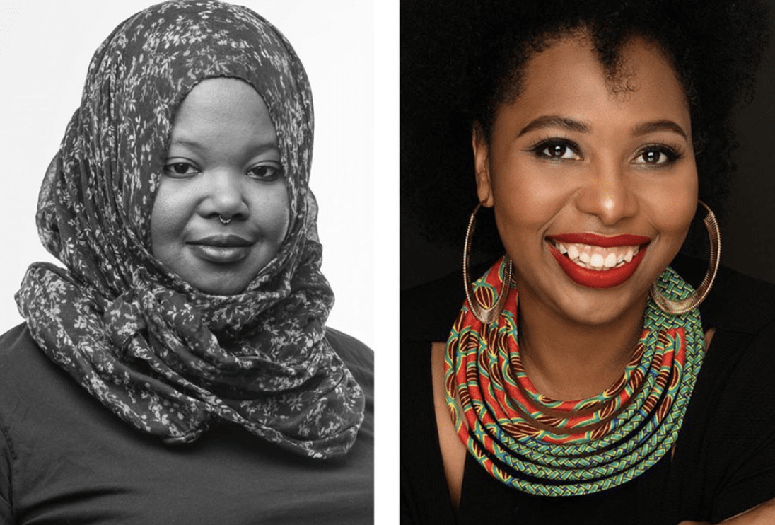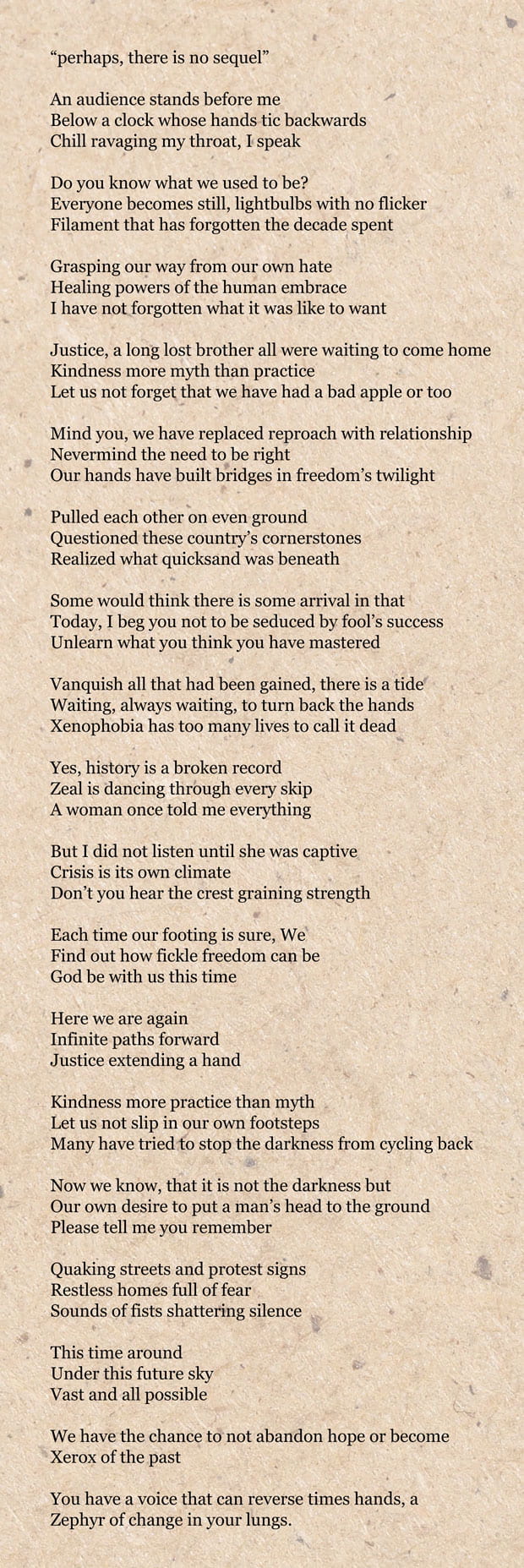Four large, traffic-yellow banners bearing phrases such as “a committee made an announcement: a better future awaits us” have stood spotlighted on the quad outside Brochstein Pavilion since their installation at the beginning of the spring semester.
The installation — “perhaps, there is no sequel” — is the most recent commission in the Rice Public Art Platform series. New York-based artist, writer and educator Kameelah Janan Rasheed created the piece with an invitation for response, encouraging the Rice community to participate, reinterpret and expand on her words.
One of those responses is a new community poem.
Written by Houston poet laureate Deborah D.E.E.P. Mouton, the poem was performed live June 6 during a “takeover” of the Moody Center for the Arts Instagram account in a “virtual poetry intervention,” organized by Ylinka Barotto, associate curator at the Moody.
Following an introduction by Rasheed, Mouton read her new poem — a full-throated response to Rasheed’s installation that captures the emotions of a world on edge. Mouton, whose work has long been centered around police brutality and the Black body, stressed the urgency of truly learning from the past in order to move forward in our current moment:
“Many have tried to stop the darkness from cycling back / Now we know that it is not the darkness but / Our own desire to put a man’s head to the ground / Please tell me you remember / Quaking streets and protest signs / Restless homes full of fear / Sounds of fists shattering silence”
Community poems such as those written by Mouton or NPR's poet-in-residence Kwame Alexander are written by soliciting words, phrases or ideas from others and weaving them like threads into a final piece that captures the emotions and energy of a greater body.
Rasheed solicited responses to “perhaps, there is no sequel” from Rice students and other community members via an online form that encouraged them to “write down a question using any of the words on the banners.” Another prompt read: “Write down or draw ‘the current time’ without using numbers or words that describe numbers.”
The resulting words, phrases and even drawings all informed Mouton’s final work.
“I’ve done community poems before, but never from pre-sourced material,” said Mouton, an activist and educator who’s also known for her captivating spoken word performances and extemporaneously composed poems.
Mouton said she was surprised by how “dark” and “hopeless” many of the students’ responses were. It seemed many of them, she said, “feel like they’re on this precipice of everything falling into doom and they don’t have any insight into how we get out of it.”
Amid the pandemic, the deaths of Breonna Taylor, Ahmaud Arbery and George Floyd have led to widespread international protests against police brutality. “The current time” is one of crisis, unrest and turmoil — and the community poem responding to Rasheed’s installation captures this intensity.
Yet it is also a poem infused with hope. Mouton ends on a message as powerful as Rasheed’s impassioned demand in “perhaps, there is no sequel” to interrogate the world around you until it starts making sense.
“This time around under this future sky / Vast and all possible / We have a chance not to abandon hope or become a / Xerox of the past / You have a voice that can reverse time’s hands a / Zephyr of change in your lungs”
Mouton remains hopeful even as she’s had to find ways to discuss difficult topics like racism and police brutality with her two young children, who can’t help but overhear news coverage while they’re at home during the pandemic. And as an educator, she’s naturally inclined toward creating the kinds of crucial conversations that underpin community poetry.
“In the piece, I really wanted to kind of take some of that ‘doom’ and the wondering about what will happen and answer it with, ‘There will be a point at which we look back on this time, you know, and we won't be in the same position anymore,’” she said.
“I think it's easy to be to be pessimistic and to be down right now, so any little bit of hope I can get back into the world — I'm all about that.”
Watch Deborah D.E.E.P. Mouton perform her poetic response to Kameelah Janan Rasheed’s “perhaps, there is no sequel” on Instagram.



